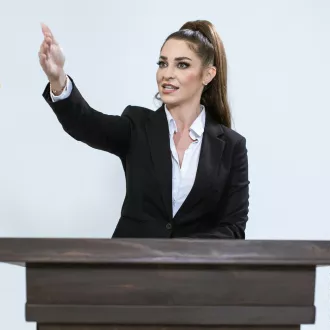Transcription How to dress for a job interview
Communication skills are essential in the workplace and become even more important during a job interview. While it is common for us to focus on preparing and giving accurate answers, we often neglect the value of the brief informal exchanges that occur during the interview.
These interactions may seem insignificant compared to the main answers, but they play a special role in forming impressions and in the interviewer's evaluation of the candidate.
Personal connection: During the interview process, it is of utmost importance to establish a personal connection with the recruiter. Brief informal exchanges, such as inquiring about shared interests or commenting on the climate, can create common ground between the two parties.
In addition, these interactions provide the employer with a valuable opportunity to assess the candidate's soft skills, such as his or her ability to engage in conversation and maintain fluid communication. Although it may not seem like it, these informal moments exert a great influence on the final hiring decision.
Organizational culture: A company's organizational culture encompasses a set of shared values, beliefs, norms, traditions and behaviors that define its identity. This culture influences various aspects, such as decision making, work execution and interaction among team members.
In this regard, informal conversations play a crucial role in providing the interviewer with the opportunity to assess whether the individual would fit in with the company's operations and principles.
Additional questions: During informal conversations in an interview, the candidate is not only expected to answer the interviewer's questions, but also to raise his or her own doubts and concerns. In this sense, the candidate has the opportunity to inquire about the company, the position and the associated responsibilities, reflecting a real interest in thoroughly understanding the expectations of the position.
Questions can address specific aspects of the job, such as daily tasks, objectives and goals to be achieved, available resources, opportunities for professional growth and development, among other details.
Start a conversation: To help you start a short conversation during the interview, here are some practical tips:
- Observe your surroundings: Before and during the interview, pay attention to the details around you. Notice objects, photographs or other items that may reveal the interviewer's interests. These details can serve as starting points for conversation.
- Make comments: If you find something interesting in the office or interview room, take the opportunity to make a pertinent comment.
- Common interests: If you discover that you have interests or hobbies in common with the interviewer, you can mention them and briefly share your related experiences or accomplishments.
- Active listening: Dur
how to dress interview




